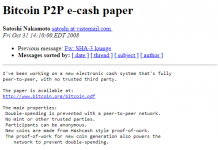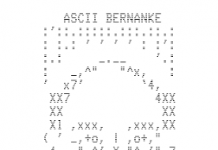LAS VEGAS — One of the many buzzwords at this week’s CES technology show is “blockchain” — the technology underpinning the bitcoin craze. While bitcoin is the flash of the moment, there’s growing excitement about how this concept can move beyond digital currency and affect people’s lives.
Simply put, blockchain is like a ledger book that can be group-edited by people in the cloud. There’s no central company or government that has to verify a transaction, which means thing can move more quickly. As changes are made, it keeps a public log of what changed, when and how. For that reason, it’s very difficult to fake a change or gain access to the log if you’re not supposed to. The records also aren’t tied to your name, so it makes blockchain another more secure way that people can exchange data.
“It’s not really about bitcoin at all,” said Halsey Minor, a founder of CNET and Salesforce who’s now focusing his attention on blockchain and video. Blockchain is as important a new technology as the Internet, he said, and anyone who doesn’t see that “is missing the point.”
Some places and companies have already started using blockchain in ways that go beyond currency changing hands. Estonia relies on the blockchain technology to run its national identity card which is similar to a U.S. Social Security number, and Nasdaq allows Estonians to vote online using the technology in shareholder meetings. Kodak will start using it to keep track of who owns photo rights. Blockchain’s security features also help companies such as Augmate, which started as a wearable technology company, guarantee that smart devices in the home are talking to one another securely, and that people can see what information’s getting transferred.
And now at CES, entrepreneurs are touting more applications of the technology. Here are some ways people I spoke to at CES envision how we could use blockchain technology in the future:
Paying for power
ImpactPPA is a power company that lets you buy some time on a generator to power your home, or donate some power to people in places that aren’t wired for electricity. The group has generators in 35 countries around the world. Blockchain lets ImpactPPA deliver power quickly to people who need it, when they need it, without having to wait hours or days for their money to be processed by a bank and a power company.
The company’s chief executive, Dan Bates, showed me how it works. From his app, he purchased a single unit of power — about 60 seconds — on a generator in Hyderabad, India. After just a minute or two of waiting while the blockchain processed his request, the generator started moving. And it all happened in less time than it takes to pay a power bill online, and without having to go through any exchanges despite the international transaction.
Calling for help
Guardian Circle is a security firm that wants to use blockchain to take emergency services into a new age. Founder Mark Jeffrey was inspired to try this after a loved one had a seizure while home alone. Guardian Circle will use blockchain to send an instant alert to the people you choose — friends, family, medical professionals or its own security staff. Unlike the 911 system or similar senior alert apps, it will also be able to share your location quickly and securely with the people you’ve chosen, even if you’re on a cellphone.
It also lets those people speak to one another, to make it easier to coordinate how to deal with an incident — for example, if your mother knows about an allergy you have but the neighbor who’s first on the scene doesn’t.
Letting other people use your computer to feed the world’s binge-watching
Minor’s venture, VideoCoin, aims to use blockchain to help with a problem facing the modern Internet: the amount of processing power it takes to support all the video we’re watching. The company wants to tap the world’s idle computers, such as the desktop you have sitting at home while you’re at work, to help solve that problem. Using blockchain, VideoCoin can reach many people at once, keep track of them and aggregate the power of those idle computers as well as idle centers.
Those who participate can store and pass video or use their computing power to process video — and are rewarded with VideoCoin’s own digital currency.



















